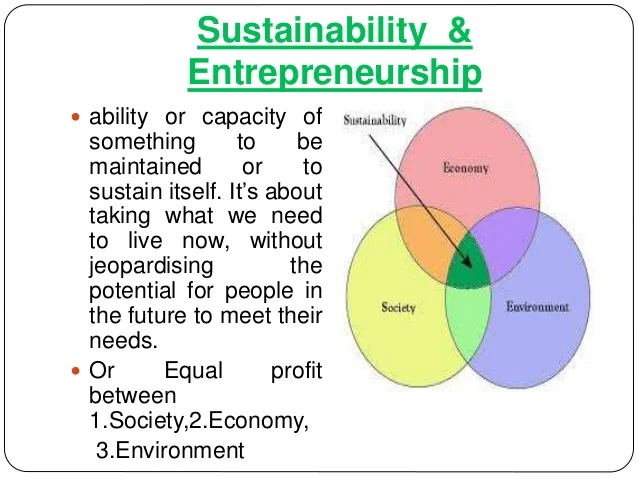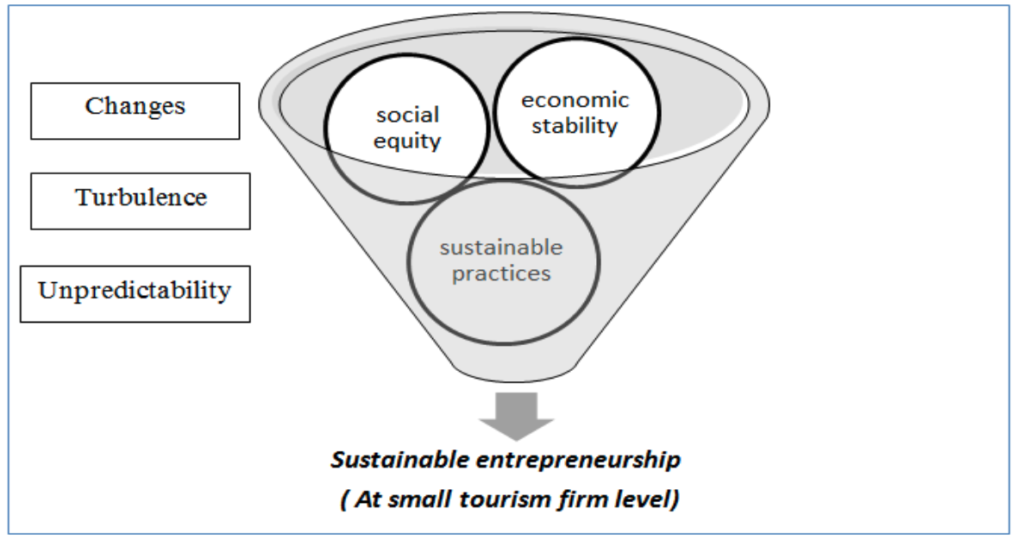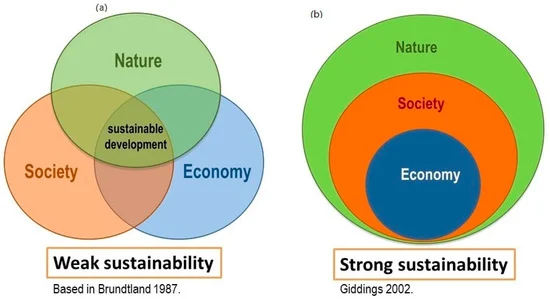Sustainable entrepreneurship embodies the fusion of profitability and societal impact, ushering in a new era where businesses prioritize not just financial gains but also the welfare of communities and the environment. The modern entrepreneur is confronted with a pivotal choice: balancing profit and purpose.
In this article, we delve into the essence of sustainable entrepreneurship and explore strategies to harmonize financial success with societal well-being.
Table of contents
- Introduction to Sustainable Entrepreneurship
- The Role of Purpose in Entrepreneurship
- Challenges in Achieving Sustainability and Profit
- Strategies for Sustainable Entrepreneurship
- Measuring Success Beyond Profit
- Impactful Stories of Sustainable Entrepreneurs
- The Consumer Perspective on Sustainable Businesses
- The Future of Sustainable Entrepreneurship
- Conclusion
- FAQs
Introduction to Sustainable Entrepreneurship

At its core, sustainable entrepreneurship revolves around the concept of conducting business while considering the triple bottom line: people, planet, and profit. It emphasizes the creation of economic value while embracing social responsibility and environmental stewardship. Entrepreneurs who champion this model seek to redefine success by intertwining financial goals with a broader vision of sustainability.
The Role of Purpose in Entrepreneurship
Purpose serves as the compass guiding the actions of sustainable entrepreneurs. Companies driven by a strong sense of purpose not only contribute to their bottom line but also foster positive societal change. Examples abound, such as Patagonia’s commitment to environmental activism or TOMS Shoes’ one-for-one philanthropic model, showcasing how purpose-driven missions can elevate businesses to platforms of societal influence.
Challenges in Achieving Sustainability and Profit

However, achieving this delicate equilibrium between profit and purpose is no easy feat. Entrepreneurs often face challenges reconciling financial objectives with ethical practices.
- Resource Management: Balancing the need for profitability with responsible use of resources like energy, water, and raw materials poses a challenge.
- Ethical Sourcing: Finding suppliers that align with ethical standards while also meeting cost and quality requirements can be difficult.
- Fair Labor Practices: Ensuring fair wages, safe working conditions, and equitable treatment for workers can be a challenge, especially in industries with tight profit margins.
- Consumer Awareness and Demand: Educating consumers about sustainability and convincing them to prioritize ethically produced goods over cheaper alternatives can be a hurdle.
Strategies for Sustainable Entrepreneurship
To successfully navigate these challenges, entrepreneurs are adopting innovative strategies.
| Heading | Explanation |
| Integration of Sustainability | Entrepreneurs embed sustainable practices like renewable resources or waste reduction into business models, making sustainability a core operational element. |
| Leveraging Technology for Eco-friendly Solutions | Implementing IoT, AI, and renewable energy to innovate eco-friendly products/services, reducing environmental impact. |
| Forging Impactful Partnerships | Collaborating with businesses, NGOs, and communities for partnerships prioritizing social and environmental impact, allowing shared resources and wider reach. |
| Stakeholder Collaboration | Involving customers, employees, suppliers, and communities to collectively address sustainability challenges, garnering diverse perspectives and support. |
| Measuring and Reporting Impact | Tracking, measuring, and transparently reporting environmental and social impact to demonstrate commitment and drive improvement. |
| Education and Awareness | Initiatives to educate stakeholders about sustainability issues, fostering a sustainability-focused culture beyond business boundaries. |
Measuring Success Beyond Profit
Redefining success metrics is a pivotal aspect of sustainable entrepreneurship. While financial profit remains vital, alternative metrics such as social impact assessments and environmental footprint evaluations are gaining traction.
Long-term benefits, including brand loyalty and resilience to market fluctuations, emerge from businesses embracing sustainable practices.
Impactful Stories of Sustainable Entrepreneurs

Numerous inspiring tales showcase the triumphs and challenges of sustainable entrepreneurship. From innovative startups tackling renewable energy to community-focused enterprises empowering marginalized groups, these stories illuminate the transformative potential of purpose-driven businesses.
The Consumer Perspective on Sustainable Businesses
Consumers, too, play a crucial role in propelling the sustainable entrepreneurship movement. Shifts in consumer behavior, with a growing preference for ethical brands, underscore the increasing significance of sustainability in purchasing decisions. Businesses aligning with societal values find themselves resonating more with their target audiences.
The Future of Sustainable Entrepreneurship

Looking ahead, the landscape of sustainable entrepreneurship holds promise and complexity. Emerging trends such as circular economies, impact investing, and conscious consumerism are reshaping the entrepreneurial terrain. However, navigating potential challenges, including regulatory changes and market demands, will be pivotal for sustained growth in this space.
Conclusion
Sustainable entrepreneurship isn’t just a trend; it’s a transformative mindset shaping the future of business. Entrepreneurs who successfully balance profit with purpose not only drive economic growth but also contribute positively to society and the environment. The journey towards sustainability requires dedication, innovation, and collaboration, but the rewards are far-reaching, fostering a world where businesses thrive while making a meaningful difference.
Readmore:
Is Entrepreneur Born or Made?
What is the Most Common Trait Successful Startups Share?
What is the Difference between Entrepreneurship and Technopreneurship
FAQs
Sustainable entrepreneurship aligns business success with societal and environmental well-being, addressing pressing global challenges.
Entrepreneurs can incorporate sustainability by adopting eco-friendly practices, ethical sourcing, and fostering social impact initiatives.
Yes, there’s a growing trend where consumers prefer brands that prioritize sustainability and ethical practices.
Balancing financial goals with ethical considerations, resource management, and adapting to evolving market demands are common challenges.

